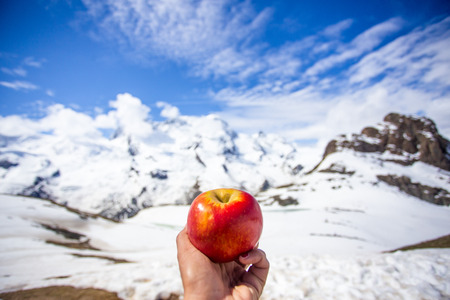Introduction: Snack Smart on the Trail
When you hit the trail, the right snacks can make all the difference in your hiking experience. Whether you’re planning a short morning trek or an all-day adventure, fueling your body with nutritious and satisfying bites helps maintain your energy levels, keeps your mood upbeat, and ensures you finish strong. Choosing between homemade and store-bought hiking snacks might seem like a simple decision, but it can actually impact everything from how energized you feel to how much you enjoy your hike. Homemade options give you control over ingredients and flavors, while store-bought snacks offer unbeatable convenience. In this article, we’ll dive into the pros and cons of each approach—and share some favorite recipes—so you can snack smarter and savor every step of your outdoor journey.
Homemade Hiking Snacks: Pros and Cons
When planning a hiking adventure, many outdoor enthusiasts debate whether to prepare their own snacks or grab something pre-packaged from the store. Homemade hiking snacks offer several unique benefits, but they also come with certain drawbacks. Let’s explore both sides to help you decide if making your own trail treats is right for you.
Benefits of Homemade Hiking Snacks
The biggest advantage of homemade snacks is the ability to customize ingredients to match your taste preferences, dietary needs, and nutritional goals. Whether you’re gluten-free, vegan, or trying to avoid excess sugar and preservatives, making your own snacks puts you in control. Plus, homemade treats are often fresher than store-bought options, which can make a big difference in flavor and texture. If you love experimenting in the kitchen, creating your own recipes can be a fun way to bond with family or friends before hitting the trail.
Pros at a Glance
| Benefit | Details |
|---|---|
| Customization | Choose ingredients that suit your diet and taste |
| Freshness | No preservatives; made right before your hike |
| Nutritional Control | Adjust protein, fiber, and sugar as needed |
| Ingredient Quality | Use organic or locally-sourced foods if desired |
| Fun & Family-Friendly | Get creative with flavors and involve kids in preparation |
Drawbacks of Homemade Hiking Snacks
Despite their perks, homemade hiking snacks do require a time investment. Prepping ingredients, baking or mixing, portioning out servings—all of this adds up when you’re already busy planning a trip. Shelf life can also be an issue; without commercial preservatives, homemade snacks may not last as long on the trail, especially in warm weather. You’ll need to consider food safety and storage solutions to keep everything fresh. Finally, some recipes might not travel as well or could be messier than their store-bought counterparts.
Cons at a Glance
| Drawback | Description |
|---|---|
| Preparation Time | Takes effort to shop for ingredients and make snacks from scratch |
| Shelf Life | Lacks preservatives; may spoil faster during longer hikes or hot days |
| Packing Challenges | Some items may crumble or melt more easily than packaged alternatives |
| Portion Control Needed | You have to measure and pack individual servings yourself |
| Food Safety Concerns | Certain recipes (like those with dairy) may not be suitable for unrefrigerated storage |
If you have the time and enjoy experimenting with healthy ingredients, homemade hiking snacks are a rewarding option. Just remember to plan ahead for freshness and safe storage so your trail treats stay delicious and satisfying until your last mile.

3. Store-Bought Hiking Snacks: Pros and Cons
When planning your next outdoor adventure, store-bought hiking snacks can be a real lifesaver. Convenience is the biggest draw—just grab and go! From protein bars to trail mix and jerky, these options are ready to toss in your backpack without any prep time. The variety available in U.S. grocery stores and outdoor retailers is impressive. You’ll find gluten-free, vegan, keto-friendly, and allergy-conscious snacks to suit every dietary need or personal preference.
Another benefit is their portability. Most commercial snacks come in individually sealed packages that are lightweight, non-perishable, and easy to stash—even in a crowded daypack. This packaging keeps food fresh for longer trips and prevents messes, which is great when you’re out on the trail.
However, there are a few important considerations before loading up on pre-packaged snacks. Many store-bought items contain added sugars, excessive sodium, or preservatives to extend shelf life and enhance flavor. While an energy boost from sugar might sound helpful mid-hike, it can lead to crashes later on and isn’t always the healthiest choice for frequent hikers.
The cost of convenience also adds up quickly. Individually packaged snacks tend to be pricier than homemade alternatives—especially specialty items like organic or high-protein bars. And let’s face it: sometimes the ingredient list is full of things you wouldn’t normally keep in your kitchen.
If you prioritize ease, variety, and portability, store-bought snacks are hard to beat. Just remember to read nutrition labels carefully and balance convenience with mindful choices for your body—and your budget.
4. Top Homemade Hiking Snack Recipes
When it comes to fueling your outdoor adventures, nothing beats the satisfaction of whipping up your own hiking snacks at home. Not only do homemade snacks let you control the ingredients and flavors, but theyre often healthier and more budget-friendly than store-bought options. Here are some favorite easy-to-make recipes that are especially popular among American hikers.
DIY Trail Mix
This classic snack is endlessly customizable and perfect for on-the-go energy. Choose a mix of nuts, dried fruits, seeds, and something sweet for a balanced treat.
| Ingredient | Suggested Amount |
|---|---|
| Almonds (roasted) | 1 cup |
| Dried cranberries | 1/2 cup |
| Pumpkin seeds | 1/3 cup |
| Semi-sweet chocolate chips | 1/4 cup |
| Pretzel pieces or granola clusters | 1/2 cup |
Toss all ingredients together in a large bowl and store in an airtight container or zip bag. Easy to portion and even easier to enjoy!
No-Bake Energy Bites
Energy bites are a go-to for busy hikers who want a quick, nutritious snack that packs well and tastes great.
Basic Recipe:
- 1 cup old-fashioned oats
- 2/3 cup peanut butter or almond butter
- 1/2 cup ground flaxseed or chia seeds
- 1/2 cup mini chocolate chips or raisins
- 1/3 cup honey or maple syrup
- 1 tsp vanilla extract (optional)
Mix everything in a bowl until combined. Roll into 1-inch balls and refrigerate for at least 30 minutes. Store in a sealed container for up to one week.
Homemade Protein Bars
If you prefer something more filling, try making your own protein bars. This recipe is both simple and customizable based on your dietary needs.
Simple Protein Bar Recipe:
- 1 1/2 cups rolled oats
- 1 cup protein powder (your favorite flavor)
- 1/2 cup nut butter (peanut, almond, or sunflower seed)
- 1/3 cup honey or agave syrup
- A pinch of salt & splash of vanilla extract (optional)
- Add-ins: dried fruit, nuts, or seeds as desired
Mix dry ingredients first, then add nut butter and sweetener. Press mixture firmly into a lined baking dish. Chill for at least an hour before slicing into bars. Wrap individually for grab-and-go convenience.
A Few Tips:
- If you have allergies, swap out ingredients like nuts for roasted chickpeas or seeds.
- Add spices such as cinnamon or pumpkin pie spice for seasonal flair.
- Create variety by switching up your add-ins each time you make a batch!
The beauty of homemade hiking snacks is that you can tailor them to fit your taste preferences and nutritional goals—plus, they’re fun to make with friends or family before your next big hike!
5. Favorite Store-Bought Snacks Among Hikers
When it comes to hiking snacks, the convenience of store-bought options is hard to beat—especially when you’re prepping for a big adventure or squeezing in last-minute trail plans. Here’s a look at some of the most beloved store-bought snacks among American hikers, highlighting crowd-pleasers from top US brands and considering dietary preferences so everyone can find something delicious and energizing.
Classic Energy Bars: Clif Bar & KIND
Clif Bar is practically synonymous with hiking in the US. Their wide range of flavors—like Chocolate Chip and White Chocolate Macadamia Nut—make them a consistent favorite. With an emphasis on organic ingredients and plant-based energy, they’re popular with both vegetarians and vegans.
KIND bars, celebrated for their whole nuts and real fruit, are another go-to. Their lower sugar options appeal to those watching their intake, and their gluten-free status broadens their appeal.
Trail Mixes & Nut Butters: Trader Joe’s & Justin’s
Trader Joe’s offers an impressive variety of pre-packaged trail mixes that suit every taste—from Omega Trek Mix to Simply Almonds, Cashews & Cranberries. These are loved for their freshness, affordability, and creative blends.
Justin’s Nut Butter Squeeze Packs are perfect for protein on the go, especially for hikers needing gluten-free or dairy-free options. They pair well with fruit or crackers for a satisfying mini-meal.
Jerky & Savory Snacks: Epic & Krave
Epic Bars stand out for their clean ingredients and unique meat blends like Bison Bacon Cranberry or Chicken Sriracha. Paleo-friendly and high in protein, they’re ideal for those following low-carb diets.
Krave Jerky is another hiker favorite thanks to its tender texture and bold flavors (think Black Cherry Barbecue). Many varieties are gluten-free, making them accessible to more hikers.
Satisfying Sweet Treats: Honey Stinger & RXBAR
Honey Stinger Waffles, inspired by Dutch stroopwafels, have become a sweet staple among American hikers. They offer quick carbs with a honey-based energy boost—plus gluten-free varieties for sensitive stomachs.
RXBARs, known for their minimal ingredient lists (egg whites, nuts, dates), appeal to health-conscious snackers who want transparency and no added sugars.
Diverse Choices for Dietary Needs
The US snack market has grown increasingly inclusive, offering dairy-free, vegan, gluten-free, and nut-free options to suit nearly every hiker’s needs. Always check packaging for allergen info or specialty designations—and don’t be shy about exploring local co-ops or outdoor stores for regional gems!
No matter your taste or dietary requirements, there’s a store-bought hiking snack out there ready to fuel your next adventure—deliciously and conveniently.
6. How to Choose: What’s Best for Your Adventure?
Deciding between homemade and store-bought hiking snacks isn’t always straightforward—it depends on several practical factors. Here are some friendly, real-life tips to help you make the best choice for your next adventure:
Time Constraints
If you’re planning a last-minute hike or have a jam-packed schedule, don’t feel guilty about grabbing store-bought snacks. They’re designed for convenience and can save you valuable prep time. On the other hand, if you enjoy kitchen time or want to involve family or friends, prepping homemade snacks can be a fun and rewarding experience.
Budget Considerations
Homemade snacks often cost less in the long run, especially if you buy ingredients in bulk or use what’s already in your pantry. Store-bought options, while sometimes pricier per serving, may save money by reducing waste (no extra ingredients sitting unused) and eliminating the need for specialty equipment like dehydrators.
Nutritional Needs
If you have dietary restrictions or specific nutrition goals (like high protein, low sugar, or allergen-free), homemade snacks give you total control over ingredients. However, many stores now offer a wide range of healthy, specialized options—just be sure to read labels carefully!
Length and Type of Hike
For short day hikes, either option works well—just focus on what sounds tasty and keeps your energy up. For longer backpacking trips where weight and durability matter more, consider mixing both: homemade treats for fresh variety early in the trip and sturdy packaged snacks that last for days.
Pro Tip
Many hikers find success with a combo approach: bring a mix of homemade goodies for that personal touch and favorite store-bought items as reliable standbys. This way, you get the best of both worlds—flavorful variety plus peace of mind.
Your Adventure, Your Choice
Ultimately, there’s no one-size-fits-all answer. Think about your time, budget, nutrition preferences, and hike length—and remember that both homemade and store-bought snacks can fuel an amazing day outdoors. Choose what works for you and enjoy every step of your journey!

